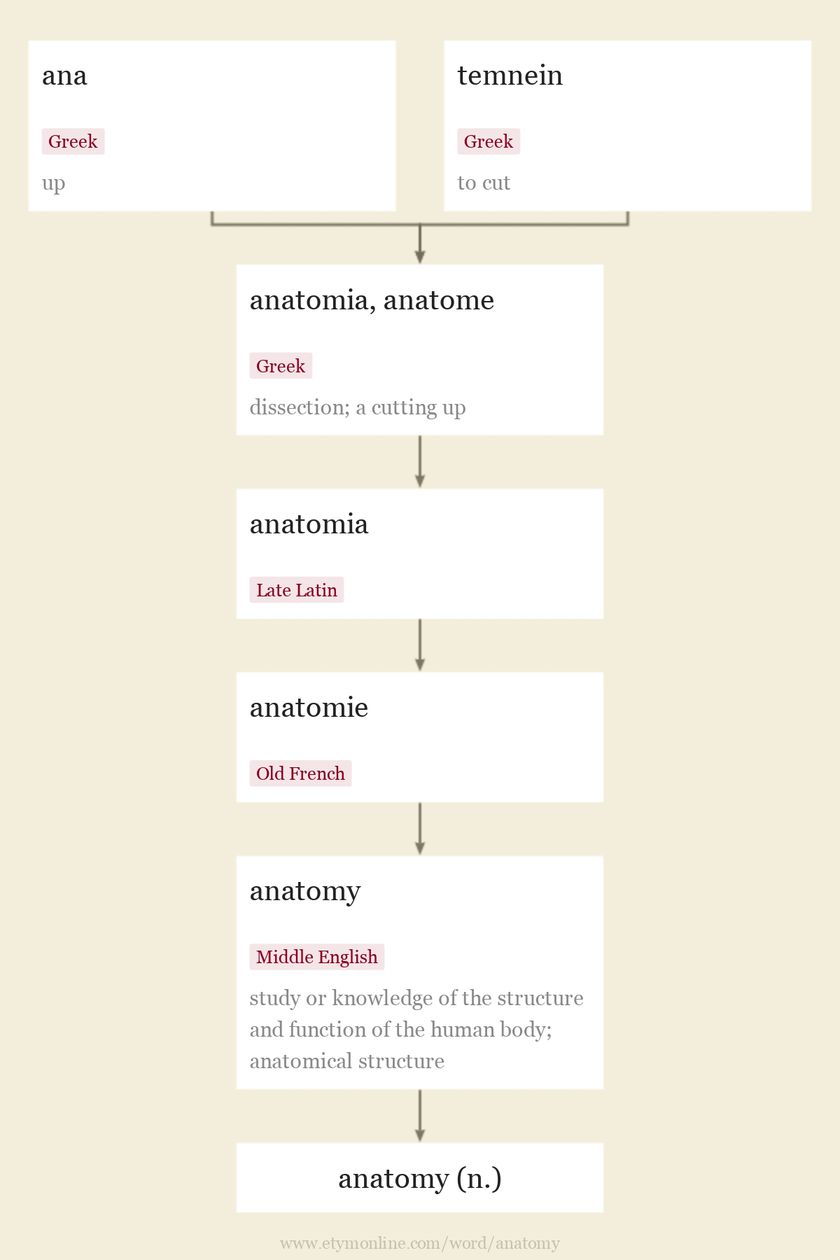| 词源 |
anatomy n.late 14c., "study or knowledge of the structure and function of the human body" (learned by dissection); c. 1400, "anatomical structure," from Old French anatomie and directly from Late Latin anatomia, from late Greek anatomia for classical anatomē "dissection," literally "a cutting up," from ana "up" (see ana-) + temnein "to cut" (from PIE root *tem- "to cut"). "Dissection" (1540s), "mummy" (1580s), and "skeleton" (1590s) were primary senses of this word in Shakespeare's day; the meaning "the science of the structure of organized bodies" predominated from 17c. Of persons, "the body," from 1590s. Often misdivided as an atomy or a natomy (see N). The scyence of the Nathomy is nedefull and necessarye to the Cyrurgyen [1541] updated on September 20, 2022 |
